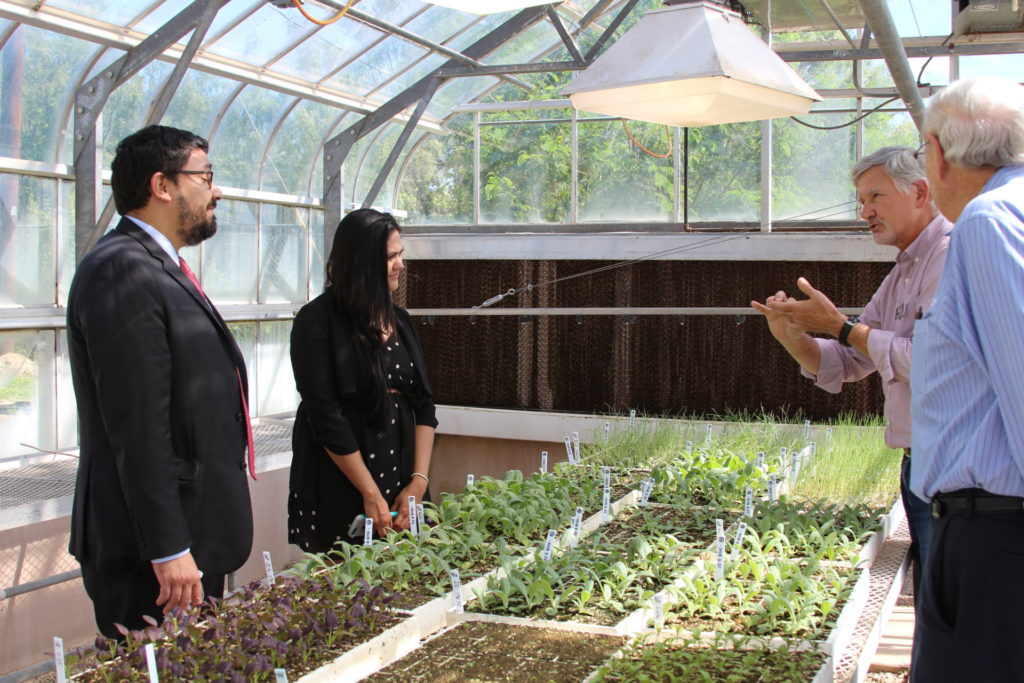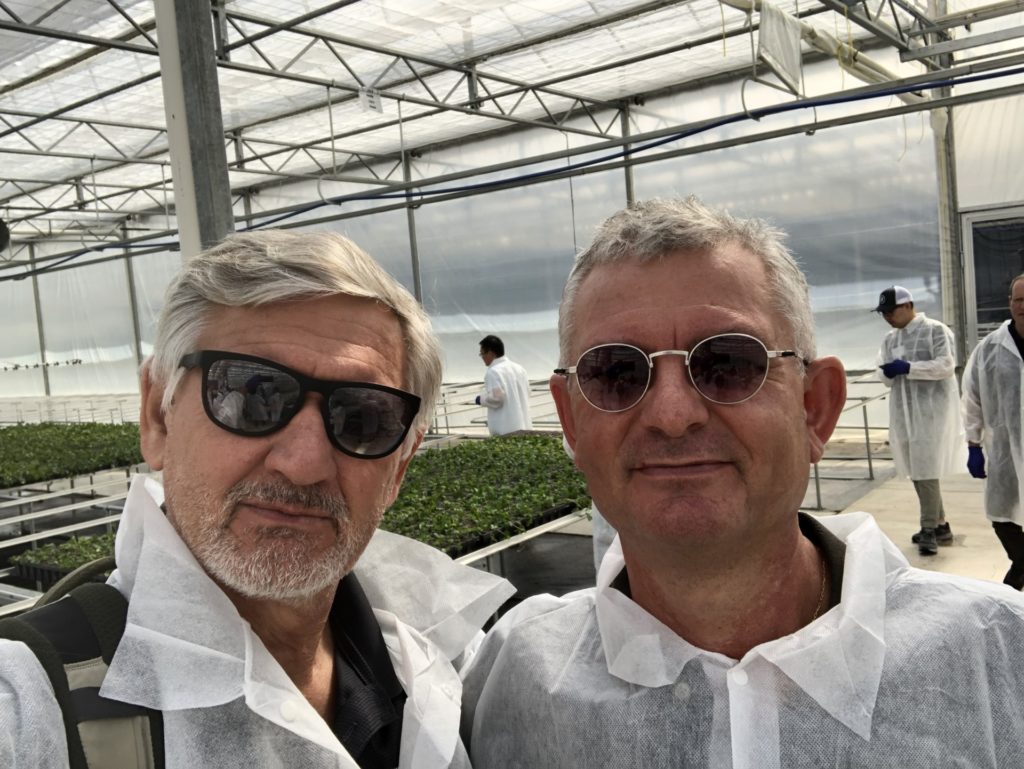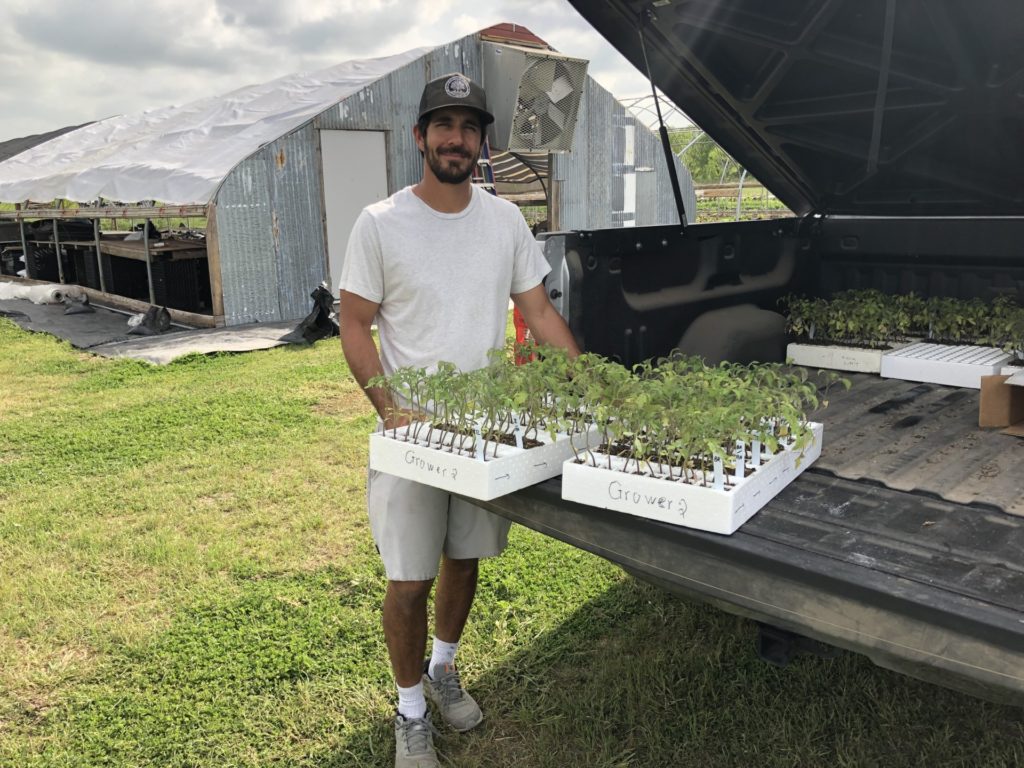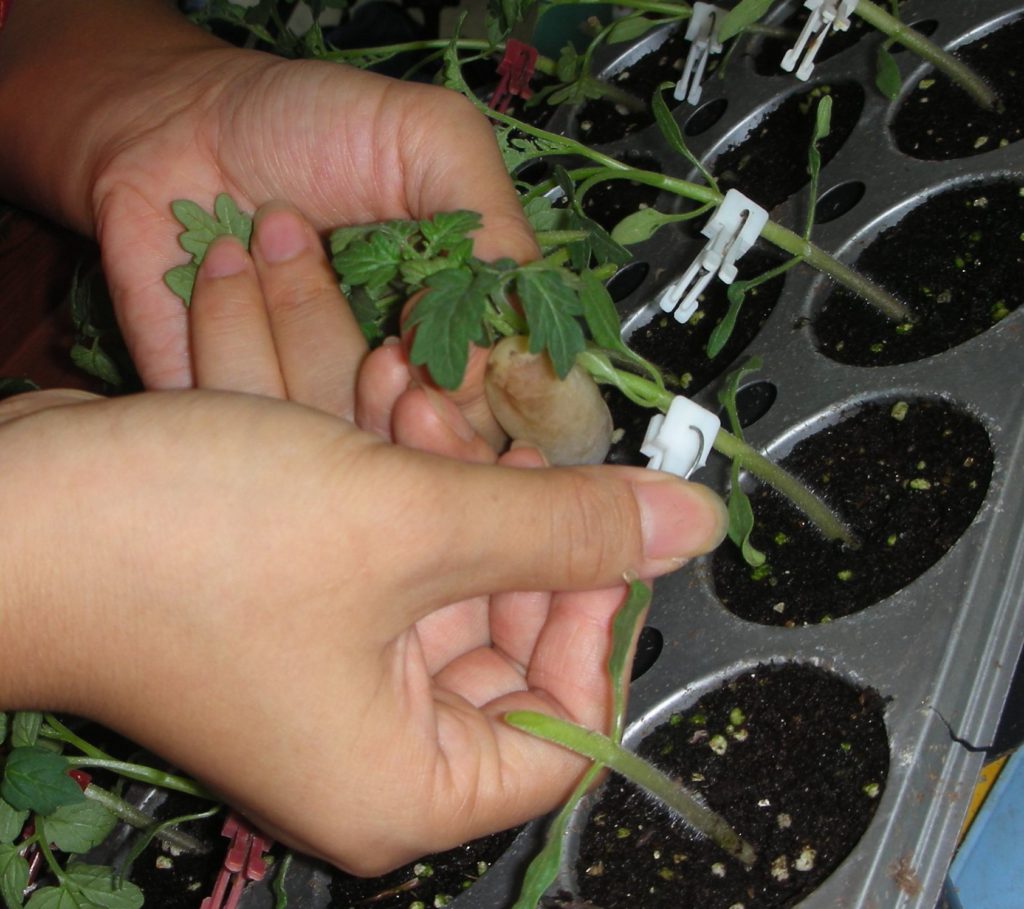Texas A&M AgriLife involved in multistate and international seedling improvement project
Object is to provide high-quality, better-performing seedlings for vegetable nurseries, growers
The Texas A&M AgriLife Research and Extension Center in Uvalde is one among several institutions throughout the nation involved in a multi-year, multi-state seedling improvement project.
“The goal of vegetable nurseries is to provide high-quality, dependable transplants for growers,” said Daniel Leskovar, Ph.D., director of the Uvalde center as well as a Texas A&M AgriLife Research vegetable physiologist.

The five-year project will help identify those traits that are most desirable for producing improved seedling transplants. It will also contribute to a clearer understanding of how environmental factors affect seed and seedling performance in natural and agricultural ecosystems.
“This information is needed to ensure the continued vitality of native plant populations and the productivity of cropping systems,” Leskovar said.
Those most likely to benefit from the project are small and large commercial vegetable growers engaged in conventional and organic farming, seed industry suppliers and vegetable transplant nurseries particularly in Texas, Florida and California. The project is also expected to benefit industries involved in the production and distribution of plant growth regulators, bio-stimulants and fertilizers.
Multistate and international project participation
The five-year project, titled “Environmental and Genetic Determinants of Seed Quality and Performance,” is supported by the U. S. Department of Agriculture’s National Institute of Food and Agriculture. It is led by 11 U.S. universities including Texas A&M. Collaborating institutions are in Arizona, Florida, Iowa, Kentucky, Michigan, Montana, New York, Oregon, South Dakota and Virginia.
The Multistate Research Funds Impacts Program has also featured Leskovar and this seedling improvement research in their newly created Researcher Spotlight video.

Francisco Perez-Alfocea, Ph.D., of Murcia, Spain on tour of seedling transplant operation in Ohio. (Texas A&M AgriLife Research photo)
Individual collaborators for the project are members of W4168 – a group of highly dedicated seed research biologists at universities and federal facilities throughout the country.
“This is a group of internationally recognized authorities on seed science with a proven record of carrying out collaborative research within the present multistate project group and with other cross-disciplinary groups,” Leskovar said.
For research taking place in Texas, the project will also involve the international collaboration of industry experts in both Germany and Qatar.
Building a better seedling
Leskovar said growing high-quality transplants requires a thorough knowledge of the seed quality factors affecting germination and emergence under diverse nursery conditions.
“It also requires a broad understanding of the physiological processes underlying transplant growth and morphology in a root-confinement environment,” he noted.

Transplant quality will affect how seedlings respond to heat, water shortages or other abiotic stresses, he said. Hardiness is particularly important in Texas and other regions of southern U.S., where drought and heat stress can cause poor crop performance and significant economic losses for growers.
Despite many technological advances in the past two decades, vegetable nurseries still rely on irrigation and nitrogen fertilization to spur seedling growth, Leskovar said.
Yet new hybrids and novel crops such as hemp can especially benefit from new technologies, he said. Plant growth regulators, bio-stimulants and grafting technologies offer the potential to modulate seedling root-shoot responses and improve transplant quality.
Leskovar said the project will investigate how best to use these new technologies.
Emphasis on high-value seedlings
“Seedlings of high-value vegetables such as tomatoes, peppers, lettuce, watermelon, onions and artichokes will be assessed for root-shoot growth traits in response to bio-regulators applied to the root media or leaves,” Leskovar said. “The team will treat the seedlings, then evaluate their response, plant them in the greenhouse, then transplant them to a field. The seedlings’ response will be re-evaluated after the plants encounter heat and drought.”
The Uvalde center will be especially involved in improving the transplant quality of grafted tomato plants and also of wild-type tomato, Leskovar noted.

The team will treat tomato seedlings with different LED light qualities, media-enhancers and foliar applications of gibberellin inhibitor, Leskovar explained. Pre- and post-grafting measurements will include survival rate, number of healed grafts, traits related to root system architecture and shoot components, internal water status as well as dry biomass.
He said to better understand the physiological, biochemical and genetic traits underlying drought stress tolerance in grafted plants when using wild-type germplasm, the team will also investigate different tomato rootstock combinations and their responses to abiotic stresses.
“Growth, physiological activity in terms of leaf gas exchange and biochemical aspects, such as protein, sugars, amino acids, osmolites and antioxidant enzymes, will be measured to get a more complete picture of all the mechanisms involved,” he said.
Expected project outcomes
Leskovar said expected outcomes of the project in which AgriLife Research is involved include:
- Improving vegetable transplant quality through pre-transplant conditioning methods.
- Demonstrating the potential of commercial hybrids and wild-types as effective rootstocks to enhance growth and yield under water-deficit and hot conditions.
- Expanding understanding of the physiological-biochemical basis by which tomato grafted with wild Solanum species confers drought tolerance to the scion.
- Training and mentoring undergraduate and graduate students.
- Educating growers, nurseries, shippers, retailers and consumers through field days and workshops.
He said overall expected outcomes will include increasing the efficiency of food production, preservation of the environment and increasing the use of advanced technologies in seed and transplant systems.
Leskovar said the project will provide not only an increased understanding of the factors that influence seed biology, but also practical methods to improve seed performance in the field, both of which will be important to the training of the next generation of seed scientists.


